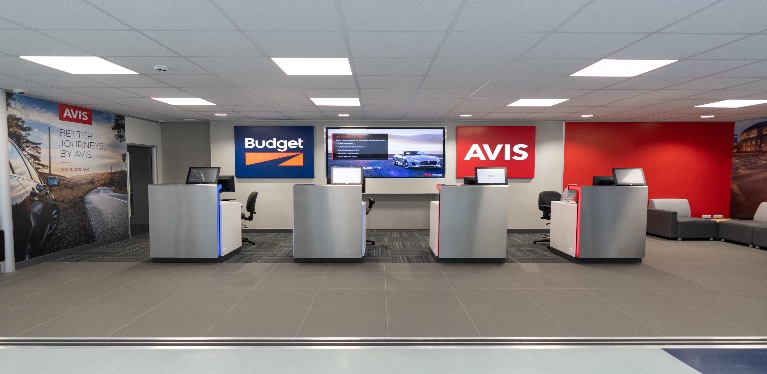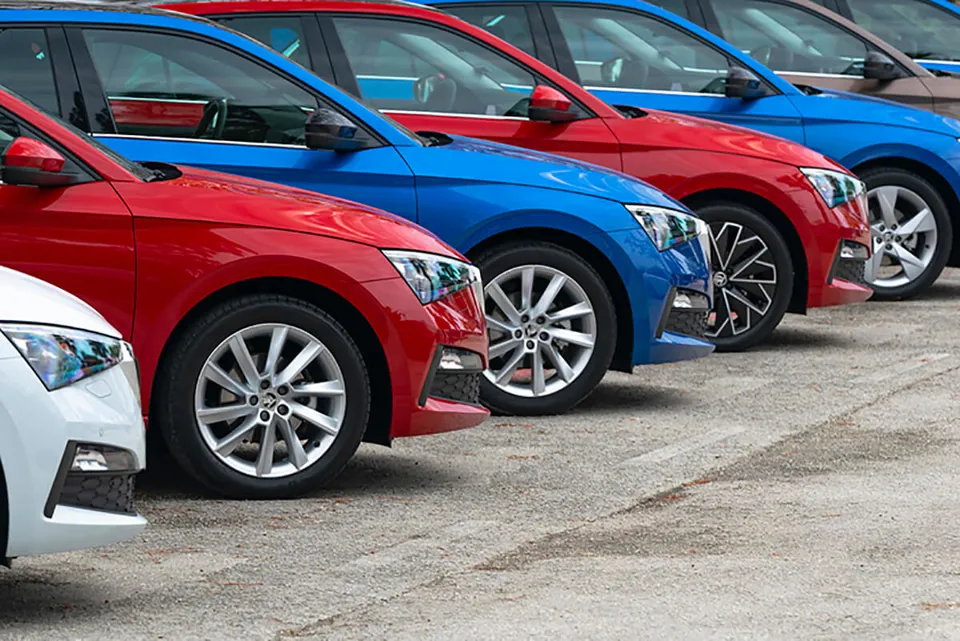To avoid unneeded expenses and to be adequately secured, it's vital to look over the insurance options and coverage offered by your rental company. Here's how you can effectively examine the insurance coverage while renting a car: Understand basic coverage: Begin by understanding what basic insurance coverages are included in the rental contract. The majority of rental companies offer basic liability coverage, which covers damage to third-party property and bodily injuries in the event of an accident where you are at fault. However, this coverage may have deductibles and limits.
Take into consideration additional insurance options. Rental companies provide additional insurance options that protect you. The most commonly used additional insurance is Collision Damage Waiver. This reduces or eliminates the financial liability you bear for damage to your vehicle. Loss Damage Waiver also protects against theft and damages.
Examine the coverage limits and deductibles Examine the coverage limits and deductibles that are associated with each insurance plan. Calculate the maximum that the insurance company will pay out in the event of loss or damage, as well as the amount of money you will be responsible for yourself (deductible) prior to the insurance coverage going into effect.
Examine your Personal Insurance Policy. See if your auto insurance or credit card policy will cover rental vehicles. Some credit card companies offer additional insurance coverage for rental vehicles when you pay with the card. You may be covered under your personal auto insurance for rental cars. However, insurance coverage depends on your policy.
Consider Your Risk Tolerance: If you're considering purchasing additional insurance, consider your financial and risk-taking capacity. If you're worried about damage or theft of the rental car and want security, buying additional insurance may be worth the expense. To save money, you might decide to not purchase the insurance through the rental company if you've already purchased adequate coverage.
Inquire About Exclusions and Exceptions Contact the rental company regarding any exceptions or exclusions to the insurance coverage, for instance the restrictions on off-roading, unauthorized drivers, or use of the vehicle for commercial use. To avoid unpleasant surprises, be sure that you're aware of the terms and conditions of insurance.
Document Damages: Before settling a rental car, inspect it thoroughly for signs of wear and wear and tear. Note any dents, scratches, or other damage on the rental agreement and capture photos or videos to serve as evidence. This will prevent you from having to pay for damages present in the vehicle when you return it.
Reviewing the insurance policy and other options provided by the rental company will assist you in making the right decisions. In this way you'll be secure during your rental period without having to pay for unnecessary expenses. See the best homepage for Rent cars for blog advice including day by day car rental, rent your car out, car for 1 day rent, same day car hire, rental luxury cars near me, car rental car, rent a car premium, rent a car weekend, rent a car in europe, hire a car us and more.

What Is The Best Way To Inspect The Vehicle For Any Existing Damage Or Signs Of Wear And Tear?
Before you sign the lease, it's important to check for damage or wear and wear. Otherwise, you could be held responsible for issues that already existed. Here are some steps you can take to ensure that the car is thoroughly inspection:
You should carefully inspect the car's exterior for scratches, dents, and other damages.
Special attention should be given to bumpers and doors fenders, mirrors and other components that are likely to be damaged.
Check the windshield and windows for cracks, chips, or other damage.
Examine the underside of the vehicle for signs of leaks or damage to the undercarriage.
Interior Inspection
Open all doors including the trunk and inspect the interior of the vehicle.
Examine the seats, upholstery and carpets to look for any stains.
Verify that the adjustment for all seats, not just the one for the driver, are in good working order.
Inspect the steering wheel, dashboard and controls for problems or damage.
Examine the state of heating and air conditioning systems and the ventilation.
Test the audio, light, signals and other electronic devices.
Functional Inspection
Get your car started and check for any warning or error messages warning lights on the dashboard.
Check the accelerator, brakes and clutch (if applicable) to make sure that they function without a hitch.
Verify that all the lights are on by turning off your brakes, headlights, and high beams.
Check the windshield washers, the washer liquid, horn and emergency braking.
Note any damage that may occur:
Use a rental agreement form provided by the rental company, or a smartphone app to document any existing damage or issues.
Make videos and photos from various angles. Pay attention to the wear and tear or damage.
On the rental agreement, note the location, size and severity of any dents, scratches or other damage.
You should notify the representative from the rental company of any damage before you take the vehicle.
Report Damage
The representative from the rental company should be informed of any damages or issues that you've found in the course of your inspection.
The repair should be documented and then send you a copy of the inspection.
The representative of you and the rental company should sign the rental contract or the inspection report in order to confirm any damages.
Make sure you follow these steps to guard yourself against the risk of liability. If you thoroughly inspect your rental car and looking for signs of wear before accepting the car, you will ensure a smooth rental experience.

What Are The Most Important Questions You Need To Ask About Additional Drivers Coverage?
If you're considering the Additional drivers policy for the rental of a vehicle particularly in the event that you intend to add additional drivers to the vehicle, it's vital to understand the policies, as well as any additional fees, that could be charged. Here are some factors to consider and questions to ask: Policy Details Learn about the policy of the rental firm concerning additional drivers. Find out about restrictions, rules or limitations regarding adding extra drivers.
Authorized Drivers: Determine which drivers are eligible to add an additional driver. Rental companies typically require that the additional driver meet certain criteria. They must be at minimum 18 years old, holding a valid license and being included in the rental contract.
Fees and Charges - Find out about any additional fees or charges that may be incurred for adding an extra driver to the rental contract. Certain rental companies might charge a per-day fee for each additional driver, while others may offer a flat rate for the duration of the rental.
Review the rental company's pricing structure. How is the fee calculated? Is it per day, per rental period or per driver? Understanding the fee structure allows you to budget your expenses and avoid costly charges.
Ask about membership benefits: If you're a part of a membership or loyalty program of an organization, inquire if there are any discounts or other advantages related to additional Drivers. Certain rental companies will waive or reduce the fees associated with additional drivers for those who belong to certain organizations.
Primary Driver Responsibility: Confirm that you are accountable for any damage caused by other drivers who appear on your rental agreement. Find out how to assign responsibility in the case of an accident or incident involving additional drivers.
Age Restrictions - Determine if there are any restrictions that are applicable to drivers who have additional. Certain rental companies may have age requirements that must be met by additional drivers.
Documentation required: Inquire about the documentation needed to allow additional drivers. This could be an official license or evidence of insurance. Check that all drivers have the necessary documents before they are added to the rental agreement.
The number of additional drivers Contact the rental company about the maximum permitted number of additional drivers in the rental agreement. Certain rental companies restrict the number of drivers who can be added and some charge a fee for every driver that exceeds a certain number of drivers.
If you are aware of the additional driver policy and asking the questions above, you will be in a position to avoid any unexpected or fees that are unexpected in the course of your rental.
